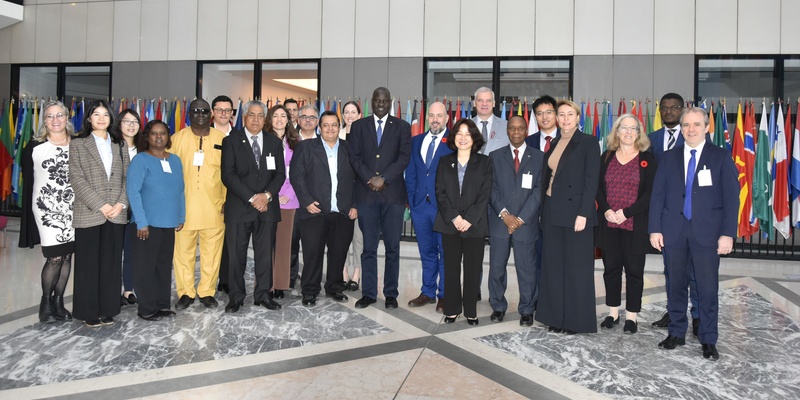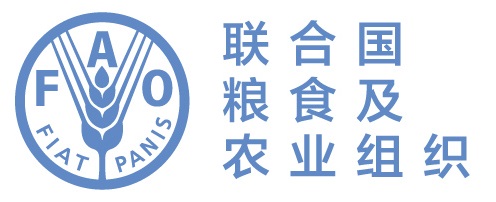标准实施与能力建设委员会计划更大规模、更高质量推进植物健康工作
Posted on Fri, 29 Nov 2024, 13:32

©粮农组织/ AnitaTibasaaga – IPPC标准实施与能力建设委员会与IPPC秘书处工作人员在意大利罗马粮农组织总部合影留念
罗马,2024年11月15日。推广国际植物保护公约(下称“IPPC”)电子植物检疫认证(下称“ePhyto”)解决方案的广泛应用,增加对国家植物保护组织(下称“NPPO”)如何管理电子商务快速增长相关植检风险的认识,改善标准实施和能力建设资源的开发与获取,并呼吁增加对标准实施活动和相关人力资源的资金支持——以上是2024年11月11日至15日举行的标准实施与能力建设委员会(下称“IC委员会”)会议上所讨论的关键内容。IC委员会在会上审查了秘书处标准实施与促进组(IFU)、IC委员会下辖小组和团队2024年所做的工作,并批准了它们2025年的工作计划。
明年,IPPC秘书处将与联合国粮农组织网络学院合作推出IPPC植物健康校园。该数字平台将提供超过六门新的在线学习课程——NPPO入职课程、NPPO学习路径、NPPO运营、国家植检能力发展战略制定、利益攸关方关系管理、应急准备、资源调动等。此外,该平台还将包括所有现有的IPPC在线学习课程和指南。鼓励IPPC缔约方将IPPC植物健康校园的培训材料纳入其国家NPPO工作人员的培训计划中。IPPC植物健康校园最初将以英文、法文和西班牙文呈现,后续计划增加粮农组织其他官方语言(阿拉伯文、中文和俄文)。
IPPC秘书处日常事务负责人Arop Deng感谢IC委员会在指导标准实施和能力建设方面所做的工作。他表示:“我殷切鼓励IC委员会确定可持续的资金解决方案,以确保IPPC的重点活动和主题付诸实际。”
其他计划中的活动包括:鼓励各NPPO了解并获取IPPC开发的在线能力建设资源;支持更多国家采用IPPC ePhyto解决方案;支持更多NPPO进行植物检疫能力评估(PCE)以确定其植检系统是否有效;继续开展IPPC观察系统有关电子商务的研究。电子商务调查结果将指导实施IPPC关于“管理电子商务和邮寄及快递途径”的发展议程项目(DAI),并协助确定有助于减少有害生物传播风险的措施。
进展更新
IC委员会在会上听取了关于IPPC ePhyto解决方案开发和采纳情况的汇报。IPPC秘书处为IPPC ePhyto解决方案建立多捐助方信托基金(MDTF)的工作已进入后期阶段,缔约方可为该基金提供资金支持。此外,IPPC ePhyto解决方案正在非洲推行,其目标是在三年内将至少70%的非洲国家无缝对接到ePhyto中心。目前,非洲54个国家中只有13个完全将ePhyto纳入其卫生和植物卫生贸易相关流程。该倡议正在与标准与贸易发展基金(STDF)、全球贸易便利化联盟(GFP)、Trademark Africa、非洲联盟和非洲大陆自由贸易区(AfCFTA)秘书处合作开发。
会议还听取了关于2024年10月举行的植检委主席团和战略规划小组会议成果、“非洲植物检疫计划”(APP)、2024年IPPC区域研讨会、区域植物保护组织技术合作会议(TC-RPPO)、“全球有害生物灾情预警和响应系统” (POARS)有害生物选择标准、标准实施指南编写以及IPPC关于植物健康中抗微生物药物耐药性(AMR)调查第三阶段的最新情况汇报。上述调查旨在探索植检背景下杀真菌剂和抗生素的使用范围和性质,其结果有望阐释植物健康在“同一健康”框架中的作用。
IC委员会主席Dominique Pelletier赞扬了IPPC秘书处和IC委员会下辖小组在2024年资金有限和人员短缺的情况下,在标准实施和能力建设工作上取得的显著进展。他强调确保这些活动(如IPPC观察系统、“全球有害生物灾情预警和响应系统”、镰刀菌TR4全球协调、植物检疫能力评估、指南编写)获得可持续资金支持的重要性。他同时指出,要为IPPC标准实施工作所需的人力资源提供可持续的资金支持,这一点同样至关重要。
IC委员会一致通过了会议报告,该报告将很快发布。

